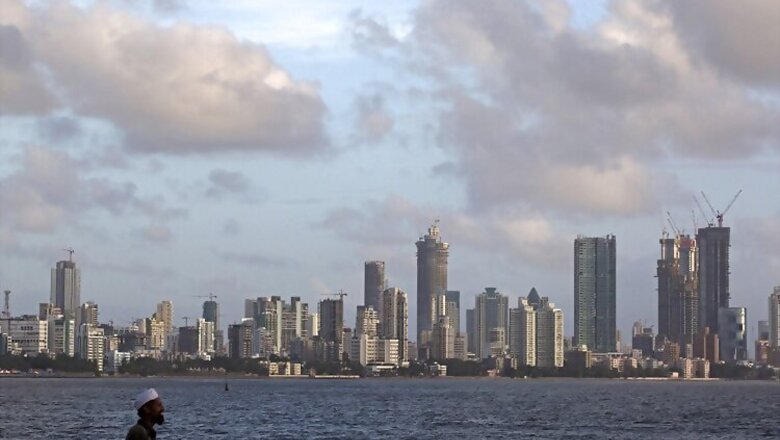
views
Mumbai: Mumbai, the financial capital of the country, held its position as the most expensive city in
India and is ranked above Dallas, Frankfurt and Vancouver, according to a recent survey.
Luanda, the capital of Angola, has been rated the world's costliest city to live in, for third consecutive year, as per Mercer's 'Cost of Living Survey 2015'.
"India's most expensive city, Mumbai (at 74th place), climbed 66 places in the ranking due to its rapid economic growth, inflation and services basket and a stable currency against the US dollar," the survey has revealed.
"It (Mumbai) has witnessed higher inflation over the last one year compared to other metro cities, higher cost of fuel, transportation, increased prices of food items, home services and rentals, impacting the cost of living," it said.
The survey further said that Mumbai is ranked higher and more expensive than cities like Dallas (77), Munich (87), Luxembourg (94), Frankfurt (98) and Vancouver (119).
Mumbai, the most populous city in the country, is followed by New Delhi (132nd place) and Chennai (157), which rose in the ranking by 25 and 28 spots, respectively. Besides, Bengaluru (183) and Kolkata (193), the least expensive Indian cities, climbed in the ranking as well, it said.
The survey includes 207 cities across five continents and measures the comparative cost of more than 200 items in each location, including housing, transportation, food, clothing, household goods and entertainment.
Asian cities dominate the top 10 costliest cities rankings along with major cities in Switzerland, it said.
Hong Kong (2), Zurich (3), Singapore (4) and Geneva (5) top the list of most expensive cities for expatriates, while Bishkek (207), Windhoek (206) and Karachi (205) are considered world's least expensive cities for expatriates, according to the survey.
Tel Aviv (18) continues to be the most expensive city in the Middle East for expatriates.
"With a large number of Indian multinational organisations expanding their footprint abroad, 85% of them are expecting expatriate assignments to rise over the next two years to address business needs," Mercer India Practice Leader, Global Mobility, Ruchika Pal opined.
Indian companies have been bullish on sending employees abroad and view this strategically for multiple
reasons, she said. Firms send experienced talent for launching foreign investment, filling in for skill or managerial gap or for developing leaders and careers, she said.
"Organisations continue to recognise the importance of international assignees. What they need to evaluate even more closely is the impact of political and economic factors such as currency stability, inflation and political instability, to balance cost versus competitiveness of the expatriate's compensation package," Pal added.
The survey also revealed that South Africa, UAE, the UK and USA are expected to witness the highest increase in the number of Indian international assignees.




















Comments
0 comment